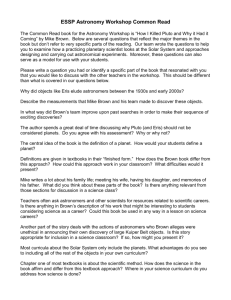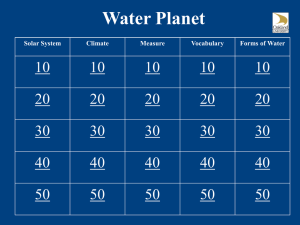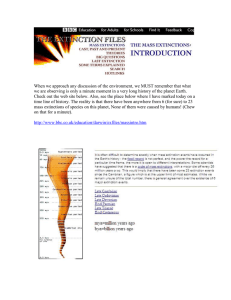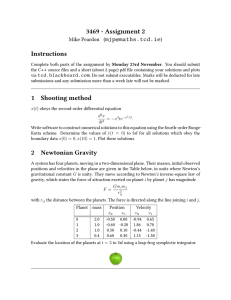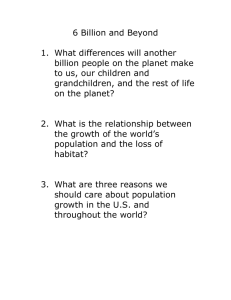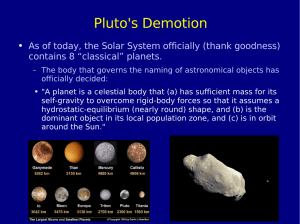TWENTY REASONS WHY PLUTO SHOULD NO LONGER BE A PLANET
advertisement
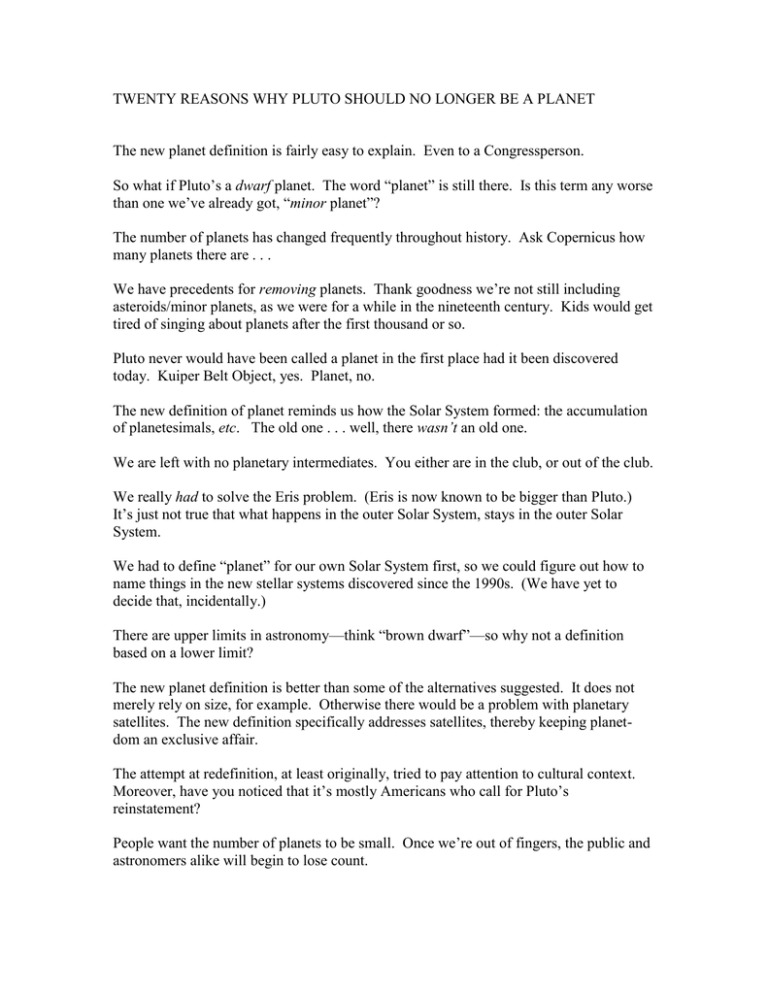
TWENTY REASONS WHY PLUTO SHOULD NO LONGER BE A PLANET The new planet definition is fairly easy to explain. Even to a Congressperson. So what if Pluto’s a dwarf planet. The word “planet” is still there. Is this term any worse than one we’ve already got, “minor planet”? The number of planets has changed frequently throughout history. Ask Copernicus how many planets there are . . . We have precedents for removing planets. Thank goodness we’re not still including asteroids/minor planets, as we were for a while in the nineteenth century. Kids would get tired of singing about planets after the first thousand or so. Pluto never would have been called a planet in the first place had it been discovered today. Kuiper Belt Object, yes. Planet, no. The new definition of planet reminds us how the Solar System formed: the accumulation of planetesimals, etc. The old one . . . well, there wasn’t an old one. We are left with no planetary intermediates. You either are in the club, or out of the club. We really had to solve the Eris problem. (Eris is now known to be bigger than Pluto.) It’s just not true that what happens in the outer Solar System, stays in the outer Solar System. We had to define “planet” for our own Solar System first, so we could figure out how to name things in the new stellar systems discovered since the 1990s. (We have yet to decide that, incidentally.) There are upper limits in astronomy—think “brown dwarf”—so why not a definition based on a lower limit? The new planet definition is better than some of the alternatives suggested. It does not merely rely on size, for example. Otherwise there would be a problem with planetary satellites. The new definition specifically addresses satellites, thereby keeping planetdom an exclusive affair. The attempt at redefinition, at least originally, tried to pay attention to cultural context. Moreover, have you noticed that it’s mostly Americans who call for Pluto’s reinstatement? People want the number of planets to be small. Once we’re out of fingers, the public and astronomers alike will begin to lose count. Don’t worry about the children. They’re resilient. Nobody’s scarred for life because Pluto dropped out. The new definition shows the importance of change in science. As my friend NASA historian Steve Dick says: If the New Horizons spacecraft finds that Pluto is really the Star Wars Death Star, we’ll have to reclassify again! The new planet definition illuminates the excitement of new discoveries. In this case, it’s that there are a lot more solar-system bodies out there than we thought. The new definition fosters discussion about a new kind of solar-system body. For instance, KBOs are a lot like comets! They’re trans-Neptunian; made of rock and ice; in very elliptical, highly inclined orbits; and may have temporary atmospheres. The new definition puts to rest some very troublesome potential new words batted about: There will be no “plutinos,” “plutonians,” or “plutons.” (Geologists really objected to our stealing that last one.) In the final analysis, the new definition only applies to astronomers (though universalizes it among different communities). Since when do we pay much attention to them? Er, to us? Three years from now, at the next meeting of the International Astronomical Union, we can do it all over again . . .


